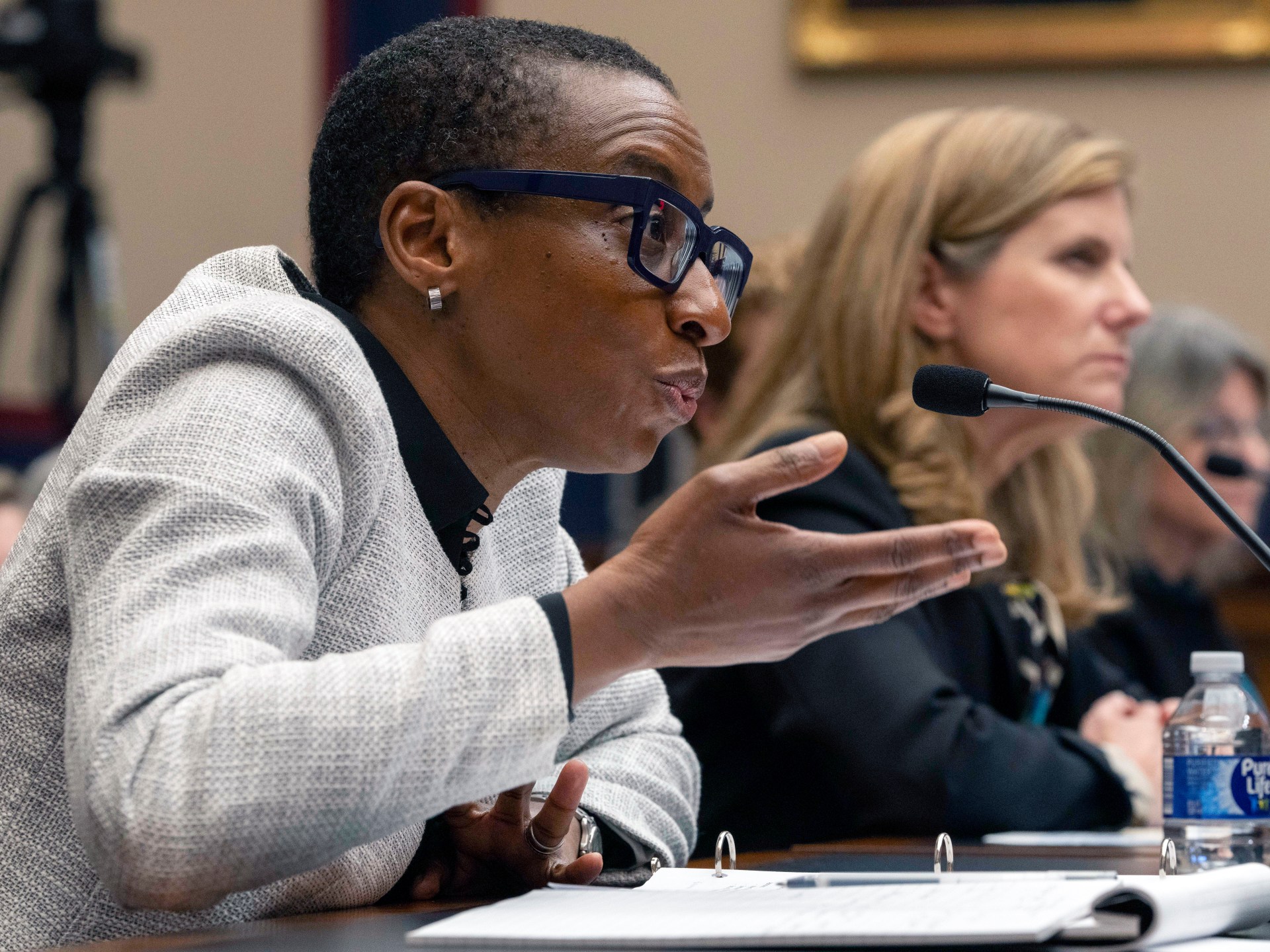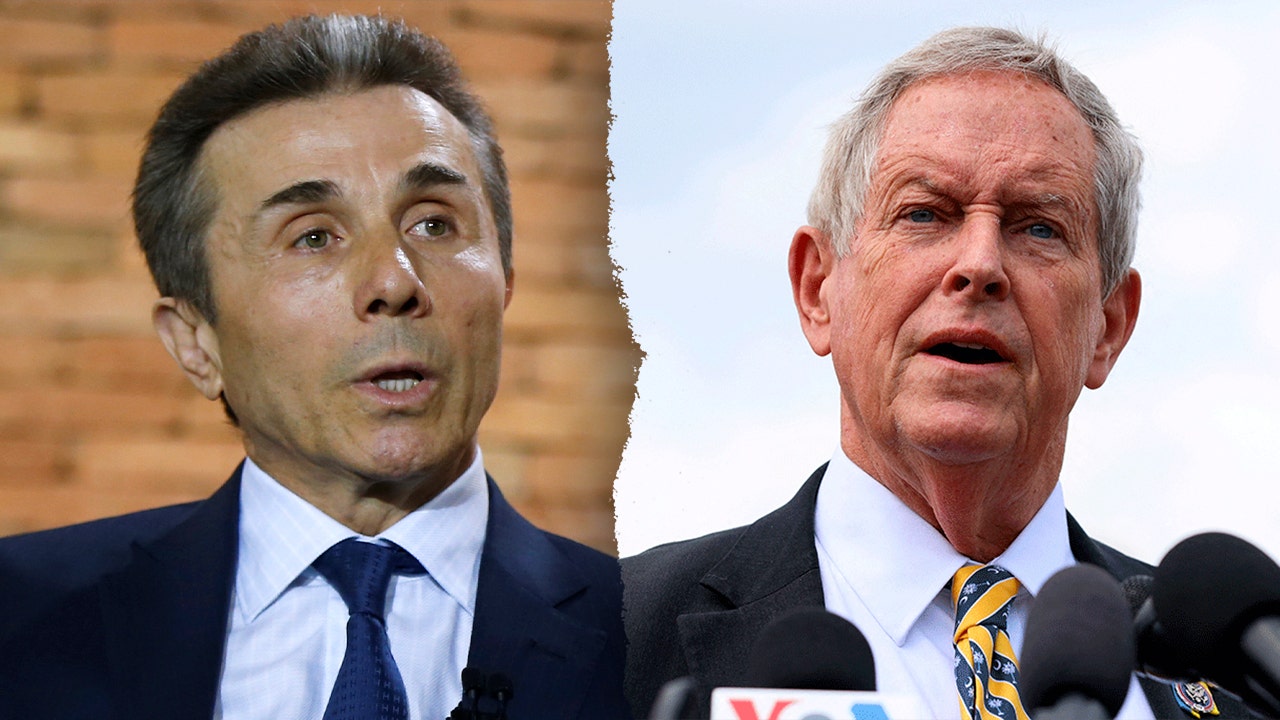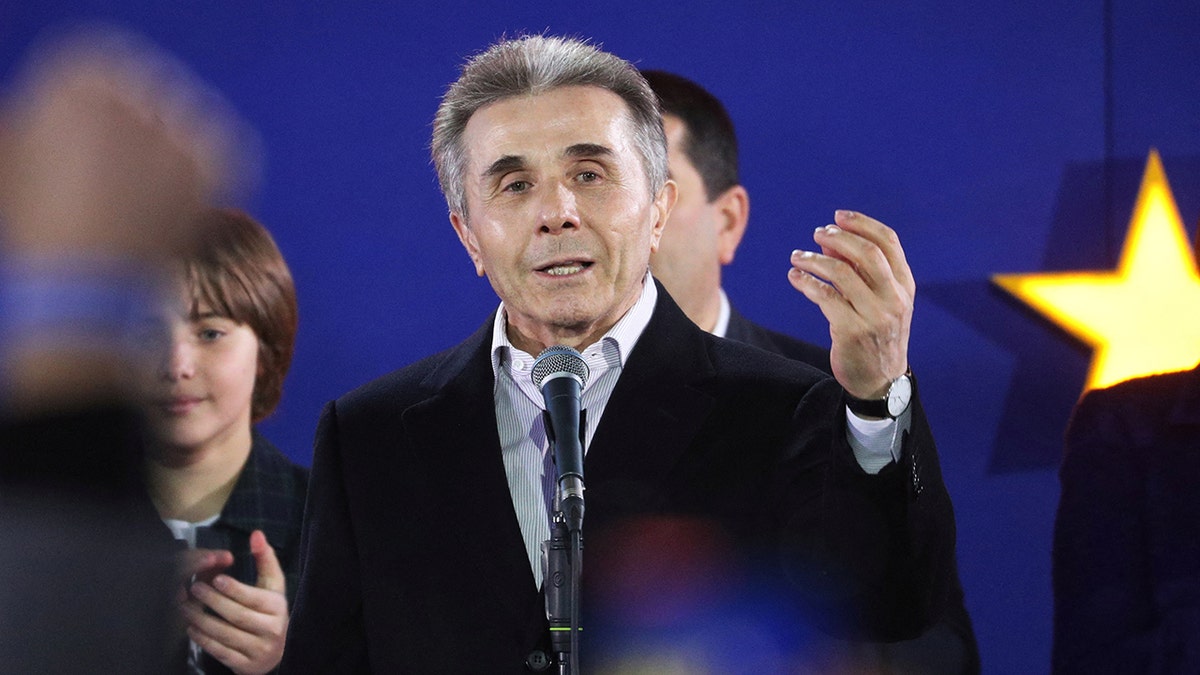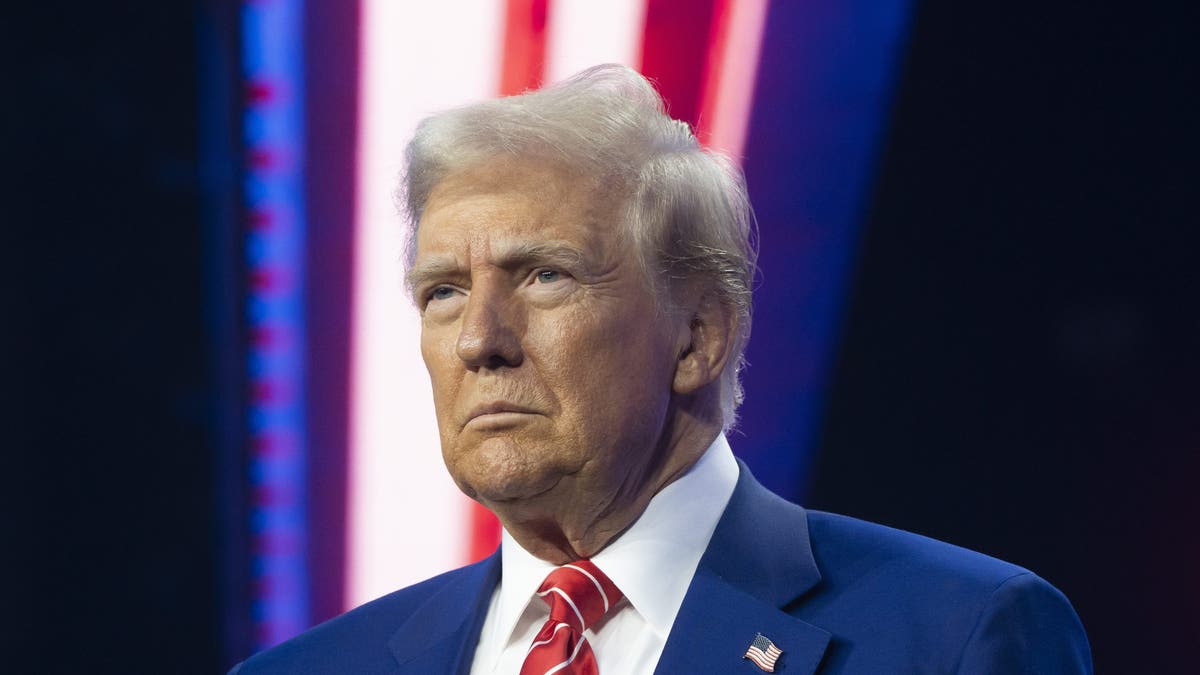World
Israel-Gaza war on US campuses: Why are top university leaders under fire?

Leaders at the three top universities in the United States have faced calls to resign after their testimony before a congressional hearing on campus anti-Semitism set off a firestorm of criticism.
On Tuesday, Harvard University announced it would keep political scientist Claudine Gay as its president, after her counterpart at the University of Pennsylvania, Elizabeth Magill, stepped down over the weekend.
Gay, Magill and Sally Kornbluth, the president of the Massachusetts Institute of Technology (MIT), have all faced a backlash since their joint appearance before Congress on December 6, where they were asked how they would address anti-Semitism at their universities.
Republican Representative Elise Stefanik grilled the academic leaders for offering evasive answers about whether calls for the “genocide of Jews” violated their schools’ codes of conduct.
“Calling for the genocide of Jews is dependent on the context?” Stefanik said incredulously in response to their answers. “That is not bullying or harassment? This is the easiest question to answer yes.”
Fears over anti-Semitism and other forms of hate have spiked since the start of the Israeli war in Gaza on October 7, which sparked widespread campus protests in the US.
As pro-Israel and pro-Palestinian protesters clashed, university leaders faced scrutiny over what speech is protected on school grounds – and what, if anything, should be limited.
Let’s take a look at the congressional hearing and why the presidents’ testimonies have drawn bipartisan backlash, including from the White House:
Why was the hearing held?
Jewish advocacy group Anti-Defamation League and some other similar groups have warned that anti-Semitism is on the rise on US campuses, particularly since the start of the Gaza war. The staunchly pro-Israel group, however, has been accused of conflating the criticism of Israel with anti-Semitism.
And the Department of Education has opened investigations into more than a dozen universities since the war began, citing possible “discrimination involving shared ancestry” – an umbrella term that covers both anti-Semitism and Islamophobia.
Politicians, particularly on the right, have pointed to those reports as evidence that the liberal atmosphere on college campuses has gone too far.
Pro-Israel groups have deemed student chanting of the slogan, “from the river to the sea”, to be pro-Hamas, but analysts say the term has more complex roots. They say the phrase is an expression of the Palestinian desire for freedom from oppression across the historical land of Palestine.
On December 6, the House Committee on Education and Labor held a hearing to address concerns about campus anti-Semitism, calling on Gay, Magill and Kornbluth to speak.
“Today, each of you will have a chance to answer to and atone for the many specific instances of vitriolic, hate-filled anti-Semitism on your respective campuses,” Republican Representative Virginia Foxx told the university presidents.
She added that the tense atmosphere denies students “the safe learning environment that they are due”.
What happened at the hearing?
The three university presidents testified at the five-hour-long hearing, addressing how they balanced free speech with concerns for campus safety.
But it was their interaction with Stefanik towards the end of the hearing that fuelled viral outrage.
Stefanik pressed the three leaders about whether calling for the genocide of Jews would be considered harassment, insisting on direct answers. In one such exchange, she posed a hypothetical question to Magill: “Does calling for the genocide of Jews violate Penn’s rules or code of conduct, yes or no?”
Magill said it would depend on the context. “If the speech turns into conduct, it can be harassment, yes.”
“I am asking, specifically, calling for the genocide of Jews, does that constitute bullying or harassment?” Stefanik said.
“If it is directed and severe, pervasive, it is harassment,” Magill answered.
“So the answer is yes,” Stefanik said, appearing exasperated.
All three presidents refused to issue blanket statements that calling for genocide would constitute conduct violations. At one point, Gay said terms like “intifada” – the Arabic word for “uprising” – were “personally abhorrent”, but she underscored her support for “free expression, even of views that are objectionable”.
Why did the testimonies spark controversy?
Much of the outrage stemmed from the fact that the university presidents did not unequivocally condemn calls for genocide, thereby appearing tolerant of hate speech.
Tom Ginsburg, a professor of law at the University of Chicago, said the presidents came across as “lawyered”, “defensive” and perhaps “out of touch”.
However, he said, “in substance, it’s not clear that anything any of them said was wrong or inaccurate”. The presidents were simply reflecting the broad protections for free speech afforded under the First Amendment of the US Constitution.
“We live in a country where you can call for the genocide of groups and, if you’re not imminently going to cause them harm, that’s legal,” he explained.
“Go on to Twitter. It happens all the time. So [the presidents] were trying to talk about their policies, obviously, in a way which preserved their ability to say that they were applying the First Amendment.”
What kind of speech is limited on US campuses?
Zach Greenberg, a First Amendment lawyer with the Foundation for Individual Rights and Expression (FIRE) advocacy group, explained that the university presidents had to navigate a fine legal distinction in their testimonies.
The US Constitution includes sweeping protections for “political speech”, which can comprise, in extreme cases, discussions or even the advocacy of violence. But it does not protect speech that veers into threats and harassment.
The distinction is that unprotected speech represents a “serious intent to commit unlawful violence and becomes a pattern of severe, pervasive, offensive conduct that detracts a student from having an education”, Greenberg explained.
But private universities, like Harvard and MIT, have the power to go further in restricting speech, he added. They have the right “to set their own policies and determine what standard of free speech they’re going to give to their students”.
Still, free speech is the norm on most US campuses, which have traditionally been hotbeds for political activism, Greenberg said.
“The vast majority of private schools, especially liberal arts universities and Ivy League schools like your Harvard, Yale or MIT, they promise students robust free speech rights, consistent with the First Amendment.”
“The University of Pennsylvania, for example, and its policies, basically say, ‘We are guided by the US Constitution. This is a standard we’re going to apply when determining what right students have on campus.’ So students at these universities are led to believe that the limits of their rights would be those of the First Amendment.”
What has been the public reaction?
All three presidents have faced intense criticism, with some students, alumni and activists calling for their resignations.
Dozens of US politicians, including high-level Democrats, have also condemned the presidents’ words.
“It’s unbelievable that this needs to be said: Calls for genocide are monstrous and antithetical to everything we represent as a country. Any statements that advocate for the systematic murder of Jews are dangerous and revolting – and we should all stand firmly against them,” White House spokesperson Andrew Bates said in a statement last week.
Donors have also threatened to stop funding the universities. Billionaire hedge fund manager Bill Ackman denounced Gay in particular, saying in an open letter that she has done more damage to Harvard’s reputation than anyone in the university’s history. He also suggested she was hired to fulfil diversity criteria.
Still, some observers have leapt to Gay’s defence. More than 700 Harvard faculty members have signed a petition urging the school’s board to resist calls for her removal, a call that was ultimately successful.
What have the school presidents said since the hearing?
Gay has apologised for her remarks in the hearings.
She told the Harvard Crimson newspaper on Thursday: “What I should have had the presence of mind to do in that moment was return to my guiding truth, which is that calls for violence against our Jewish community – threats to our Jewish students – have no place at Harvard and will never go unchallenged.”
Magill, meanwhile, followed her testimony up with a video statement on the University of Pennsylvania’s website.
“I want to be clear, a call for genocide of Jewish people is threatening – deeply so,” she said. “In my view, it would be harassment or intimidation.”
Did the presidents keep their jobs?
Harvard’s board announced on Tuesday that Gay would remain in her role despite the backlash. MIT’s board also said last week that it stood by Kornbluth. Magill, meanwhile, stepped down from her post amid pressure.
What does the situation spell for the future of free speech at US universities?
Before her resignation as head of the University of Pennsylvania, Magill called on school administrators to “initiate a serious and careful look at our policies”.
Ginsburg, the law professor at the University of Chicago, called her words “maybe the scariest” part of the whole imbroglio. To him, it signalled a possible backslide from the school’s commitment to freedom of speech.
“We have to get rid of ideological constraints on universities, whether those come from inside the university, by politicised departments, or from outside the university – from politicians who want to make hay and get votes out of them,” he said.
Ginsburg added that revising campus rules on free speech could end up silencing “actual discussion of Israel and Palestine policy”.
“It’s a major issue of public policy. We can’t take that off the table just because of some pressure from donors and such,” he said.
Greenberg, the First Amendment lawyer, echoed those concerns, though he hoped the public discussion would prompt schools instead to shore up their free speech protections.
“We are worried that this will create a pushback against free speech and open the door toward more censorship,” he explained.
“If universities are going to water down their free speech policies to punish students for saying, ‘From the river to the sea’, for protesting Israel, for talking about this conflict, that would be a backward step.”

World
'It Ends With Us' director Justin Baldoni sues New York Times for libel over Blake Lively story
“It Ends With Us” director Justin Baldoni sued The New York Times for libel on Tuesday over its story on allegations that he sexually harassed and sought to smear the reputation of the film’s star, Blake Lively.
The lawsuit seeking at least $250 million was filed in Los Angeles Superior Court, the next major move in a growing story that has made major waves in Hollywood. It alleges the Times and Lively coordinated a smear campaign against Baldoni and his nine fellow plaintiffs.
The Times stood by its reporting and said it plans to “vigorously defend” against the lawsuit.
The plaintiffs include the film’s lead producer Jamey Heath, its production company Wayfarer Studios, and crisis communications expert Melissa Nathan, whose text message was quoted in the headline of the Dec. 21 Times story: “‘We Can Bury Anyone’: Inside a Hollywood Smear Machine.”
Written by Megan Twohey, Mike McIntire and Julie Tate, the story was published just after Lively filed a legal complaint that is usually a predecessor to a lawsuit with the California Civil Rights Department over her alleged treatment.
Both her legal complaint and the Times story allege Baldoni enlisted publicists and crisis managers in a plan to destroy Lively’s reputation if she went public with her on-set concerns.
Baldoni’s lawsuit says the newspaper “relied almost entirely on Lively’s unverified and self-serving narrative, lifting it nearly verbatim while disregarding an abundance of evidence that contradicted her claims and exposed her true motives. But the Times did not care.”
A spokesperson for the Times, Danielle Rhoades, said in a statement that “our story was meticulously and responsibly reported.”
“It was based on a review of thousands of pages of original documents, including the text messages and emails that we quote accurately and at length in the article. To date, Wayfarer Studios, Mr. Baldoni, the other subjects of the article and their representatives have not pointed to a single error,” the statement said.
But the lawsuit says that “If the Times truly reviewed the thousands of private communications it claimed to have obtained, its reporters would have seen incontrovertible evidence that it was Lively, not Plaintiffs, who engaged in a calculated smear campaign.”
Lively is not a defendant in the lawsuit. Her lawyers said in a statement that “Nothing in this lawsuit changes anything about the claims advanced in Ms. Lively’s California Civil Rights Department Complaint.”
The romantic drama “It Ends With Us,” an adaptation of Colleen Hoover’s bestselling 2016 novel, was released in August, exceeding box office expectations with a $50 million debut. But the movie’s release was shrouded by speculation over discord between Lively and Baldoni. Baldoni took a backseat in promoting the film while Lively took centerstage along with her husband Ryan Reynolds, who was on the press circuit for “Deadpool & Wolverine” at the same time.
Lively came to fame through the 2005 film “The Sisterhood of the Traveling Pants,” and bolstered her stardom on the TV series “Gossip Girl” from 2007 to 2012. She has since starred in films including “The Town” and “The Shallows.”
Baldoni starred in the TV comedy “Jane the Virgin,” directed the 2019 film “Five Feet Apart” and wrote “Man Enough,” a book pushing back against traditional notions of masculinity. He responded to concerns that “It Ends With Us” romanticized domestic violence, telling the AP at the time that critics were “absolutely entitled to that opinion.”
He was dropped by his agency, WME, immediately after Lively filed her complaint and the Times published its story.
___
Associated Press writer Ryan Pearson contributed to this story.
World
Republican congressman calls on incoming administration to target 'The Axis of Aggressors'

Violent protests erupt in Georgia
Protests erupt in Georgia after pro-Putin Dream Party leader stalls talks to join the EU over claims of foreign interference in country. (Credit: AP)
As the 119th Congress prepares for an opening session on January 3rd, one Republican Congressman appeals to the incoming Trump administration to advance U.S. interests and target foreign malign actors.
In a letter obtained by Fox News Digital, South Carolina Republican Rep. Joe Wilson calls on Secretary of State nominee, Senator Marco Rubio (R-Fla.) and National Security Advisor nominee, Representative Michael Waltz (R-Fla.) to “prioritize using U.S. law enforcement mechanisms to expose and dismantle Georgian sanctions evasion schemes, scam call centers, and other illicit Georgian Dream enterprises.”
FORMER GEORGIAN PRIME MINISTER SAYS NATION’S ELECTION WAS ‘RIGGED,’ AND ‘WRITTEN IN MOSCOW’
The letter comes after the United States imposed sanctions on Georgia’s former Prime Minister and Russia made billionaire, country’s de-facto ruler Bidzina Ivanishvili.
These operations, according to the congressman’s letter, enable Ivanishvili’s regime to profit from atrocities such as Russia’s aggression in Ukraine, “which is abetted by Chinese, North Korean, and Iranian complicity”.
On December 27th, Ivanishvili was sanctioned by the U.S. Treasury for “undermining the democratic and Euro-Atlantic future of Georgia for the benefit of the Russian federation”.
Rep. Joe Wilson (R-SC) speaks during a press conference on the Ukrainian Victory Resolution on Capitol Hill in Washington, U.S., April 25, 2023. (REUTERS/Julia Nikhinson)
Congressman Wilson, who chairs The Helsinki Commission, calls sanctions on Ivanishvili a “significant step forward” and urges the incoming administration to extend sanctions to Ivanishvili’s immediate family members and cronies:
“This is a key opportunity to advance our shared goals of defending democracy and countering malign influence worldwide. The Axes of Aggressors would be deprived of a significant force multiplier should Georgia return to rule by the Georgian people,” – the letter reads.
GEORGIAN PM PRAISES COUNTRY’S PROTEST CRACKDOWN DESPITE US CONDEMNATION
Wilson’s letter is a continuation in the series of public outcries among Georgia watchers in the United States and Europe following Georgian Dream’s highly disputed victory in October parliamentary elections and government’s subsequent decision to pause its accession to the European Union that led to massive daily demonstrations throughout the country.
Local and international election observers, including International Republican Institute’s (IRI) mission, concluded elections were “fundamentally flawed”.

Founder of the Georgian Dream party Bidzina Ivanishvili speaks after the announcement of exit poll results in parliamentary elections, at the Georgian Dream party headquarters in Tbilisi, Georgia October 26, 2024. (REUTERS/Irakli Gedenidze)
“Reflecting on what IRI’s mission observed and on what has transpired since the election, only new elections can restore the Georgian people’s confidence in their government’s legitimacy,” said IRI President Dan Twining.
Despite domestic and international calls for new elections, a single party parliament conveyed to anoint the only presidential candidate, former soccer player and a hard-line West critic Mikheil Kavelashvili on December 29th in an inauguration ceremony, visibly missing foreign dignitaries and guests.
Georgian Dream officials have repeatedly downplayed the prospect of U.S. sanctions. Minutes after the Treasury’s announcement, Prime Minister Irakli Kobakhidze claimed – “in reality, nothing has changed”.
RUSSIAN FOREIGN MINISTER BLASTS UKRAINE PEACE DEAL REPORTEDLY FLOATED BY TRUMP’S TEAM: ‘NOT HAPPY’
Kobakhidze, as well as other party leaders, also voiced optimism about “positive changes” after President Trump will take office on January 20th. However, this scenario is unlikely, according to Laura Linderman, Senior Fellow at the American Foreign Policy Council.
“Given that Trump’s national security team would likely pursue an even tougher stance against countries aligned with China and Iran, Georgian Dream’s apparent calculation that they would receive more favorable treatment under a Trump administration is misguided,” Linderman tells Fox News Digital.

U.S. President-elect Donald Trump looks on during Turning Point USA’s AmericaFest at the Phoenix Convention Center on December 22, 2024, in Phoenix, Arizona. (Rebecca Noble/Getty Images)
Linderman also says congressional Republicans are largely united in their support for Georgia’s democratic future and “Trump would be unlikely to expend political capital challenging the bipartisan consensus on Georgia’s Euro-Atlantic path”.
In recent years Ivanishvilis’s Georgian Dream government has increasingly isolated itself from the West and has aligned with authoritarian regimes. Georgia – until recently – a strategic U.S. partner has now formalized such partnership with China, has favoured Chinese companies over American investments, adopted Russian style “foreign agent” law, and suspended EU accession talks. This year alone, PM Kobakhidze has paid a number of visits to Iran. In Tehran he attended both – funeral of late Iranian President Ebrahim Raisi and inauguration of the new president Masoud Pezeshkian, who was sworn in with chants of “Death to America, Israel”
Heritage Foundations Senior Counselor and leading foreign policy expert James Carafano tells Fox News Digital, that regimes that are leaning on support from Moscow and Beijing are going to find that “playtime is over”, adding they cannot expect a “favorable or indifferent hand” from the Trump administration.
“If there are U.S. interests at stake, and there are some in Georgia, governments that want to lean on Moscow are likely to not only get a cold shoulder from Trump, they are probably going to get hit with the shoulder pads,” Carafano says.
World
From Germany to Romania: the elections that will define Europe in 2025

Voting in Europe during 2025 promises major political shifts – Germany’s snap Bundestag vote, Romania’s presidential race, Poland’s referendum on Tusk’s government and the rise of populist forces in Czechia, Norway and beyond. These contests could reshape the future of the European Union.
If 2024 was a year marked by elections around the world – featuring Donald Trump’s return to power in the US, the consolidation of right-wing parties in the EU elections, a political shift in the UK from the Conservatives to Labour, and the re-election of Narendra Modi in India – 2025 promises to bring its own set of surprises in Europe.
Here’s a round-up of the key elections taking place in 2025 and what we can expect:
Germany: back in the European political game ?
After the Bundestag’s vote of no-confidence on Chancellor Olaf Scholz on 16 December 2024, snap elections are due to take place on 23 February 2025.
The electoral campaign has been marked by the attack on Magdeburg’s Christmas market on 20 December by a doctor, who is also refugee from Saudi Arabia. Though attacker held Islamophobic views, according to Interior Minister Nancy Faeser, and expressed support for the Alternative für Deutschland (AFD) party, the incident has nonetheless crystallised anti-immigration sentiment in a region of eastern Germany already won over by the AFD.
The AfD is currently polling at 20%, second behind the CDU/CSU (32%), which has capitalised on the rejection of the SPD-Grunen-FDP coalition. The CDU is headed by Friedrich Merz, a potential future chancellor, who is proposing a policy that is more economically liberal than under Merkel and more conservative socially, for example on the issue of migration.
Merz, who rose during the Helmut Khol era, is committed to a more integrated Europe. He wants to relaunch relations with France and Poland, criticises Europe’s heavy dependence on the United States and calls for Taurus Cruise missiles to be sent to Ukraine.
Romania: a tense presidential race after foreign meddling and the rise of anti-EU populism
Romania will hold new presidential elections in 2025 after the Constitutional Court annulled the first round of voting. The court’s decision came following concerns over foreign interference in an election where the centrist, pro-EU candidate Elena Lasconi and far-right, pro-Russian candidate Călin Georgescu advanced to the second round.
The ruling followed evidence of Russian interference in the election, particularly the artificial boost Georgescu received on social media platforms, notably TikTok. Until then, Georgescu was relatively unknown to the public, but his online support alarmed authorities.
Meanwhile, the legislative elections, which were not annulled, saw a victory for the Social Democrats.
A new presidential vote is expected to take place in the first half of 2025. Official proceedings launched by the European Commission against TikTok under the Digital Services Act will provide deeper insight into how the platform’s algorithms function during elections.
Poland: a test of Tusk’s government approval amid strong right-wing opposition
The upcoming presidential elections in May in Poland are shaping up to feel like a referendum on the government led by Donald Tusk, in power since December 2023, which unites parties from the left to the centre-right. While it is Prime Minister Tusk (Civic Platform) who holds significant sway over day-to-day governance, the President still plays a crucial role. Current President Andrzej Duda from the Law and Justice (PiS) opposition party, who has held the position for eight years prior to Tusk’s return, has used his veto power to block many of the government’s policies.
The presidential race is now a showdown between candidates from the two main parties: Rafał Trzaskowski, the Mayor of Warsaw for Civic Platform (PO), and Karol Nawrocki, a historian, who will represent PiS. Although the race is tight, opinion polls suggest that the Civic Platform is likely to emerge victorious.
Italy: local elections challenge the stability of a government on shaky ground
An important electoral test awaits Giorgia Meloni next September, as elections will be held in six regions: Puglia, Campania, Le Marche, Tuscany, Valle d’Aosta, and Veneto. These elections will offer a snapshot of Italian public opinion on the relatively stable Meloni government, at least by Italian standards. Last November, coalition parties were outflanked by the centre-left coalition in the regional elections in Emilia-Romagna and Umbria – a setback for Meloni.
The Veneto region will come under particular scrutiny, given its large population and long history of being governed by the populist League, a key player in the ruling coalition.
In Puglia, MEP Antonio Decaro, chair of the Environment committee and of the Democratic Party could run as governor.
Czech Republic: the risk of a strong Europhobic axis in Central Europe
In Czechia, parliamentary elections will take place in October 2025.
The latest polls give ANO (which sits with The Patriots in the European Parliament), led by populist Andrej Babiš, 34.5% of the vote, well ahead The Civic Democratic Party (ODS) – with ECR in the EP-, led by conservative Prime Minister Petr Fiala, expected to win 13.7%, followed by the center-right STAN party (EPP) – 11%.
Babis’ victory would strengthen a far-right axis in Central Europe, which includes Hungary’s Victor Orban and Slovakia’s Robert Fico. The billionaire former prime minister has been dubbed the “Czech Trump”. Anti-elite and anti-migrant, he is also opposed to more European Union integration and shows complacency towards Russia. Many fear attacks against democracy in Czechia if he returns to power.
Croatia: the reelection of a ‘nationalist’
Croatians will elect their President of the Republic in a second round run-off on 12 January. Zoran Milanovic, the current head of state, is standing for re-election. Heis running as an independent but is supported by a coalition led by the Social Democratic Party (SDP).
Zoran Milanovic took everyone by surprise during the parliamentary elections last April when he decided to run as head of the SDP list in Zagreb. His candidacy was rejected by the Constitutional Court.
The president calls himself a “nationalist.” He is opposed to the government’s support for Ukraine and the participation of Croatian soldiers in the NATO-led mission to train Ukrainian soldiers. He leads with 37,4% in the polls, ahead of Andrej Plenkovic (20,8%), the candidate supported by the prime minister’s party, the Croatian Democratic Union (HDZ) – which sits with the European People Party (EPP) at the European Parliament – and advocates strengthening Croatia’s ties with its Western allies.
United Kingdom: will Labour’s victory last year translate into lasting support?
On 1 May, the UK will hold its first elections since last July’s general election, which saw the Labour Party return to power and Keir Starmer become Prime Minister.
This vote for England’s county councils will serve as a key test for Labour, revealing whether their victory last year will be the beginning of lasting support for the party.
According to Sky News, polls suggest that Labour and the Conservatives are currently neck and neck in the mid-20% range – a historically low level of backing for both parties – with Reform UK, Nigel Farage’s populist party, trailing by just five points. Reform UK currently holds no seats in local councils.
Belarus: an election with a silenced opposition
The 2020 Belarusian presidential election was marred by widespread electoral fraud, violent repression of the opposition and brutal crackdowns on protesters challenging the results. The election, which saw dictator Alexander Lukashenko claim a disputed victory with 80% of the vote, was widely condemned, with the European Union and other countries refusing to recognise the outcome. Alexander Lukashenko has been in power since 1994.
Since then, Belarusian human rights group Viasna has reported that over 50,000 people have been arrested on political grounds.
With the next election scheduled for 26 January, little is expected to change. Lukashenko has already warned that he may cut off internet access entirely during the 2025 presidential race if protests akin to those of 2020 erupt, according to state-run news outlet Belta in November.
Russia: a foregone conclusion
In the upcoming Russian elections next September, voters will casting their ballot for the Duma by-elections to fill vacant seats in the lower house of parliament, as well as for governors in 18 regions, regional parliaments in 11 regions, and local government representatives across various areas.
However, there are growing concerns regarding the fairness of these elections. Media freedom remains severely restricted, and political opponents continue to face harsh repression, personified by the death of opposition leader Alexei Navalny. These issues cast a long shadow over the integrity of the electoral process.
Norway: will the EU’s rightward shift reach Norway?
On 8 September, Norway will hold parliamentary elections that will decide the makeup of the 169-seat Storting and indicate who might become the next prime minister. Jonas Gahr Støre, leader of the centre-left Labour Party, currently holds the position.
As seen across Europe, the latest polls suggest a shift towards right-wing parties. The far-right Progress Party is expected to come out on top – its 10% share of the vote in 2021 is predicted to double by 2025. Hot on their heels is the centre-right Conservative Party, led by former Prime Minister Erna Solberg.
Ireland: turning the page after Higgins
No official date has been set yet, but the Irish will head to the polls by November 2025 to elect a new president, ending the popular Michael D. Higgins’ 14 years in office. Although largely ceremonial, the role of the President holds significant constitutional responsibilities, such as signing bills into law and representing Ireland on the global stage.
While no candidates have formally entered the presidential race, Irish media outlet The Journal is speculating on potential contenders. Among the names mentioned are familiar faces from Brussels: former European Commissioner Mairead McGuinness and former MEP Frances Fitzgerald – both from the centre-right party Fine Gael.
The upper house of the Irish Parliament, the Seanad, will also be renewed, though through an indirect process. Forty-nine senators will be elected by university graduates, while 11 will be appointed by the Prime Minister and vocational panels. Final results are expected from 30 January. These elections follow the dissolution of the lower house, the Dáil, on 8 November.
Georgia: will the local elections confirm the country’s pro-Russian orientation as pro-Europe protests continue?
In October 2025, Georgia will hold elections, one year after the disputed parliamentary elections won by the Georgian Dream party which as been widely accused of being pro-Russian. The country is the site of a struggle for influence between Russia and the West, while Russian troops have occupied 20% of Georgian territory since 2008.
The new government’s decision on 28 November to postpone the country’s EU accession process until 2028 provoked a wave of demonstrations in Tbilisi and other cities across the country. Georgia gained EU candidate status in December 2023, but the process was halted by the EU, citing the country’s democratically unstable conditions.
29 December marked the end of pro-European President Salome Zurabishvili’s term in office, who was replaced by the pro-Russian former footballer Mikheil Kavelashvili. He was elected on 14 December by the parliament in which Georgian Dream has a majority, in a vote that was boycotted by the opposition. As the stranglehold on pro-European forces intensifies, demonstrators have faced a heavy-handed response by the authorities. Meanwhile, Salome Zurabishvili refuses to recognise the new president and stand down from her position.
Moldova: pro-Russian ambush as parliamentary elections scheduled for 2025
As a buffer state to Ukraine, Moldavia is facing attempts at Russian interference with a disinformation campaign. The referendum on accession to the European Union in autumn 2024 went down to the wire in favour of the “Yes” camp (50.35%). Meanwhile, the pro-European president Maia Sandu was re-elected in a second round of voting.
For the 2025 legislative elections, the President’s party (The Party of Action and Solidarity – PAS) is playing for keeps. If it fails to win a majority, it will have to contend with other political forces, not all of which supported the “Yes” vote in the referendum. For Maia Sandu, these elections will be “a final battle” in Moldova’s road to EU membership, in a country where pro-Russian political opposition remains strong.
Albania: the same two political parties fighting for power
In Albania, President Bajram Begaj has set parliamentary elections for 11 May 2025 after a consultation was boycotted by the main opposition Democratic Party (DP), which accused the president of endorsing a pre-determined date by the Socialist Party.
Prime Minister Edi Rama’s Socialist Party and the DP are playing for big stakes in this election: the DP will be attempting to put an end to the Socialist Party’s three successive terms in office. The country has been in the throes of a serious political crisis for several years, the political debate being highly polarised between the DP and the socialists, heir to the communist regime and Enver Hoxha’s Party of Labour.
The opposition has accused the government of sending opposition figures to prison for political reasons. This lack of political plurality coupled with domestic resistance to fighting corruption makes EU accession talks challenging, with the negotiations for EU membership having officially started in 2022.
In May 2025, for the first time, Albanians living abroad will have the opportunity to vote.
Kosovo: will the pro-independence party keep its majority ?
In Kosovo, the Self-Determination Movement (Vetëvendosje), Prime Minister Albin Kurti’s party, is well set to win again in the parliamentary elections in February 2025. Since his landslide supermajority victory in 2021, the opposition has lacked leaders capable of challenging Kurti.
After the February’s poll, the question will be whether his party will be able to secure a majority or whether it will have to include opposition parties or representatives of the Serbian community in the government.
Srpska Lista, the Serbian ethnic party, has close ties with Serbia which does not recognise Kosovo’s independence which was declared in 2008 and is backed by key Western powers. After being refused the right to run for Parliamentary seats by the electoral commission, Srpska Lista was finally on 25 December granted the right to compete by an appeals body.
-
/cdn.vox-cdn.com/uploads/chorus_asset/file/25672934/Metaphor_Key_Art_Horizontal.png)
/cdn.vox-cdn.com/uploads/chorus_asset/file/25672934/Metaphor_Key_Art_Horizontal.png) Technology1 week ago
Technology1 week agoThere’s a reason Metaphor: ReFantanzio’s battle music sounds as cool as it does
-

 News1 week ago
News1 week agoFrance’s new premier selects Eric Lombard as finance minister
-

 Business7 days ago
Business7 days agoOn a quest for global domination, Chinese EV makers are upending Thailand's auto industry
-

 Health3 days ago
Health3 days agoNew Year life lessons from country star: 'Never forget where you came from'
-
/cdn.vox-cdn.com/uploads/chorus_asset/file/24982514/Quest_3_dock.jpg)
/cdn.vox-cdn.com/uploads/chorus_asset/file/24982514/Quest_3_dock.jpg) Technology3 days ago
Technology3 days agoMeta’s ‘software update issue’ has been breaking Quest headsets for weeks
-

 World1 week ago
World1 week agoPassenger plane crashes in Kazakhstan: Emergencies ministry
-

 Politics7 days ago
Politics7 days agoIt's official: Biden signs new law, designates bald eagle as 'national bird'
-

 Politics5 days ago
Politics5 days ago'Politics is bad for business.' Why Disney's Bob Iger is trying to avoid hot buttons


















